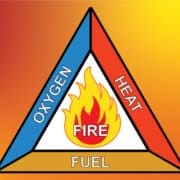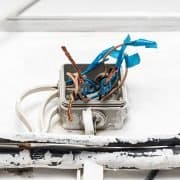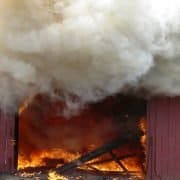Take a moment today to think about electrical hazards and how you can make your operation safe for you, your family, workers and visitors.
There are several things you can do at home, in the barn, and workshops to help eliminate the chances of shocks, electrocution and fires.
Missing covers
Missing covers on junction boxes, switches and outlets expose energized circuits, creating arc flash, shock, and electrocution hazards. In addition, missing covers provide a path of entry into the interior of the enclosure, allowing dust, dirt, and debris to accumulate. Missing covers could allow metallic objects to fall into the circuits that could arc or lodge in a way that presents a hazard when the enclosure is opened.
Broken/unsupported light fixtures
Light fixtures should be permanently mounted to the base and show no signs of damage. Light fixtures that are hanging unsupported by wiring, puts undue stress on the electrical connections. These two conditions present the potential for an electrical short, which can produce sparks that can ignite combustibles leading to a fire.
Circuit breakers
All electrical breaker panels should be equipped with an appropriate cover and remain closed. Missing covers expose the circuits to dust and physical damage. If an arc or short circuit would occur, the cover will contain the sparks from igniting surrounding combustibles.
There should not be any missing breakers or other openings between breakers. These openings allow for the potential for electrocution, physical damage, and dust and dirt to accumulate in the circuits. Spare clips should be installed in any openings in the breaker panel.
Breakers must never be taped or physically secured in the “ON” position. If the breaker is not allowed to trip, or cannot be manually tripped, the wiring could overheat, increasing the chances of a fire.
The electrical panel should be indexed, identifying each individual circuit breaker.
Housekeeping
Electrical equipment can and does fail, often catastrophically, with arcing that produces large amounts of heat. Any combustible material in the vicinity of the arc flash can be ignited.
Access to electrical rooms should be limited to authorized maintenance or operations personnel that understand the importance of maintaining a clean, well-ventilated electrical area.
Electrical equipment areas should be kept dry and equipment needs to be protected from moisture. When evidence of moisture contamination is noted, equipment should be examined for damage and necessary repairs made. The source of the moisture needs to be identified and eliminated.
Electrical equipment areas should be clean and protected from dust and dirt. Placing storage items too close to electrical panels or near electrical equipment will restrict air circulation and impede proper cooling. Excessive heat buildup will result in premature failure and shortened service life.
Work safe. Farm safe. Home safe.™
™ is a trademark of Thompsons Limited.

 Thompsons Limited
Thompsons Limited
